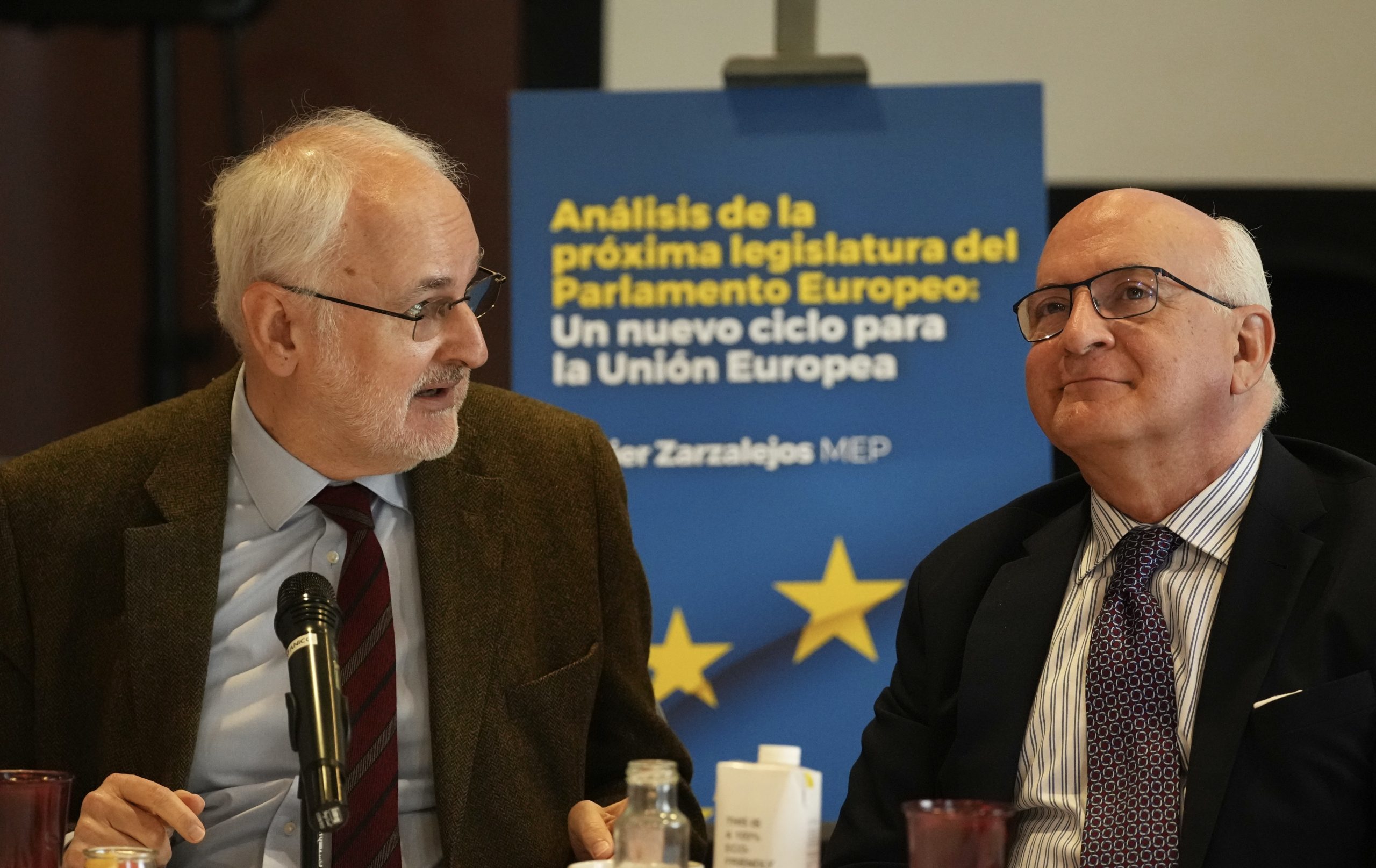BREAKFAST MEETING ON THE CHALLENGES OF THE NEW EUROPEAN LEGISLATURE

On Monday 22 April, Javier Zarzalejos convened a working breakfast to analyse the context in which the next elections to the European Parliament will take place and the main strategic lines of the new legislature.
Zarzalejos recalled that the mandate that is now expiring has been conditioned by three elements. The first was Brexit, its impact and the management of the withdrawal of a member of the Union. The second was the significant representation obtained by the Greens. The third was the emergence of the identitarian or alternative conservative right-wing and far-right parties in the Identity and Democracy (ID) and European Conservatives and Reformists (ECR) groups. The result has been a more fragmented parliament than ever before.
A series of events have underlined the exceptional nature of this legislature. The pandemic was the most notorious. Its emergence led to the suspension of fiscal rules, unlimited recourse to deficits, and the closure of all conditionality in the use of debt. The incentive to public spending was unavoidable for the supply and distribution of vaccines and to deal with a crisis that is unlike any other, given that it is due to an event that is exogenous to the European economy. But the counter-indications are also obvious: interventionist inertia and lax control procedures.
Zarzalejos added that the invasion of Ukraine has been the other key event. And its impact (on energy supply and in the form of inflationary tension) has fed into the same trend that fuelled the response to the pandemic. The new Commission is likely to face a very different scenario. The composition of the Parliament will change, with the EPP maintaining a pre-eminent position. Inter-institutional relations will be more complicated and the Commission will probably moderate its hyperactivity and focus on stabilisation policies.
Against this backdrop, Zarzalejos wanted to highlight four major challenges for the future of the EU’s strategic agenda: strengthening the rule of law; a major social and cultural challenge, linked to the demographic crisis and to the implementation and application of the new European framework for immigration and asylum; an economic challenge linked to the beginning of a path to balance national public accounts that will enable the growing cost of the welfare model to be financed; and finally, a fourth challenge, the strategic one, referring to Europe’s role in the world, in a global context marked by the conflicts in Ukraine and the Middle East and by a possible new US administration.
The presentation was followed by a lively discussion among the participants, who were able to ask questions and contribute their opinions and approaches to the subject of the session.
